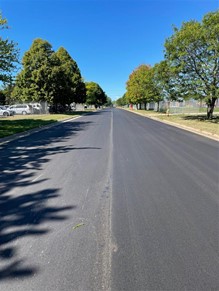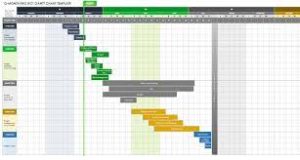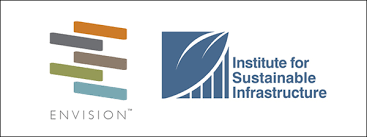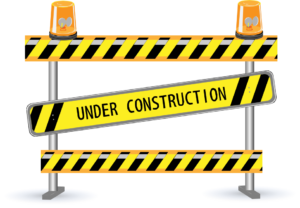Communities everywhere are demanding that infrastructure be built to protect the environment, boost economies, and protect human health. We can deliver on that challenge if we focus on building the right projects the right way. Organizations have missions, visions and values to build longer-lasting, safer roads. We strive to build a safer, more enriching, and sustainable world by harnessing our best practices, shared learnings and collaborations within the manufacturing, transportation, application and maintenance of materials used to build these longer-lasting, safer roads.
This particular article reviews two items within sustainable infrastructure you may have heard about: Envision and The Institute for Sustainable Infrastructure.
What is ENVISION?
ENVISION is a framework that encourages systemic changes in the planning, design, and delivery of sustainable, resilient, and equitable civil infrastructure through education, training, and third-party project verification.
Fundamentally, Envision is about supporting higher performance through better choices in infrastructure development.
How does Envision Verify Projects?
The Envision framework is a project planning and design tool. Their independent, third-party project verification and awards program is designed to be a transparent process to confirm that a project meets the sustainability criteria in the Envision framework.
A Project following the Envision Framework is designed to:
- Help instill community confidence that the project addresses their needs and concerns.
- Enhance tax-payer confidence that their money is being spent in their best interest.
- Demonstrate that the sustainable achievements of the project are recognized and considered noteworthy by an independent internationally recognized system.
- Motivate a project team to collaborate to achieve better outcomes.
- Provide an objective measure of sustainable performance and draws attention to the good work being undertaken.
 What is the ENVISION Framework?
What is the ENVISION Framework?
Envision includes 64 sustainability and resilience indicators, called ‘credits’, organized around five categories:
- Quality of Life
- Leadership
- Resource Allocation
- Natural World
- Climate and Resilience
The timeline associated with Envision verification varies depending on the verification pathway selected by the project team. Depending on the pathway chosen it can take between 3 to 4 ½ months to achieve ENVISION verification.
The Components of the Envision Framework
- Guidance Manual – The written framework.
- Pre-Assessment Checklist – An early-phase high-level pre-assessment.
- Online Scoresheet – The detailed online assessment tool and calculator.
- Sustainability Professional Credential – Professional training in Envision use.
- Verification – Independent third-party project review process.
- Awards – Recognition for qualifying verified projects.
There are many reasons why projects choose to go through the Envision verification process. An infrastructure owner or regulator may require it. Public agencies may want third-party confirmation of project achievements for the public good. Organizations may use the verification process as a learning tool, a process for accountability, and to calibrate their internal project assessments and application of Envision. Agencies and private companies may pursue verification for the public recognition it brings to their commitment to sustainable infrastructure.
Credentialing and The Envision Process
Through its Envision Sustainability Professional (ENV SP) credential, Envision recognizes and brings attention to individuals trained and dedicated to developing more sustainable infrastructure. When used as a self-assessment tool, Envision helps practitioners better understand and recognize their project’s contribution to sustainability.
Through an optional process offered by ISI (Institute for Sustainable Infrastructure), Envision can also be used to receive third-party verification of a project assessment which gives public recognition to infrastructure projects that make exemplary progress toward sustainability.
Collectively the commitments of public agencies, companies, and universities to use Envision draws needed attention to the value and importance of developing infrastructure more sustainably.
Perhaps most importantly, Envision is a shared platform for effectively collaborating and communicating around the complex concepts and challenges of sustainability, resiliency, and equity. Successful use of the framework in either self-assessments or third-party verifications necessitates collaboration, teamwork, and learning. Envision’s easy-to-understand approach to sustainable infrastructure becomes a tool for facilitating project team collaboration, inter-organizational cooperation, and public engagement and communication.
Learn More About Envision and The Institute for Sustainable Infrastructure
The Mission of ENVISION is to:
- Help communities around the world build sustainable, resilient, and equitable civil infrastructure.
- Train and credential Envision® sustainability professionals and verify projects using Envision®.
- Protect the environment, enhance human health and well-being, and bolster economic prosperity.
Envision is based in Washington, DC, ISI is a (501c3) educational nonprofit that was established in 2010 by the American Public Works Association (APWA), the American Society of Civil Engineers (ASCE), and the American Council of Engineering Companies (ACEC).
Though headquartered in the United States, Envision is growing in Canada, Italy, Mexico, and around the world through project verification and credentialing.
Source material for this article was found at https://sustainableinfrastructure.org/about-isi/





